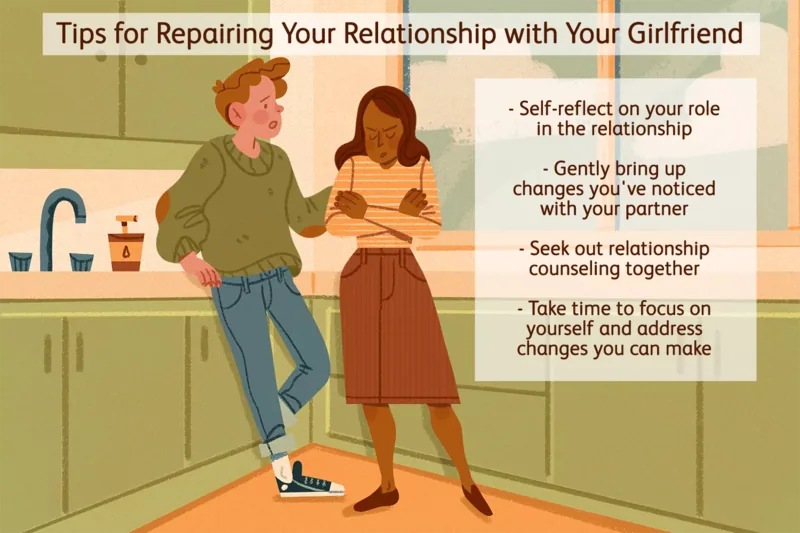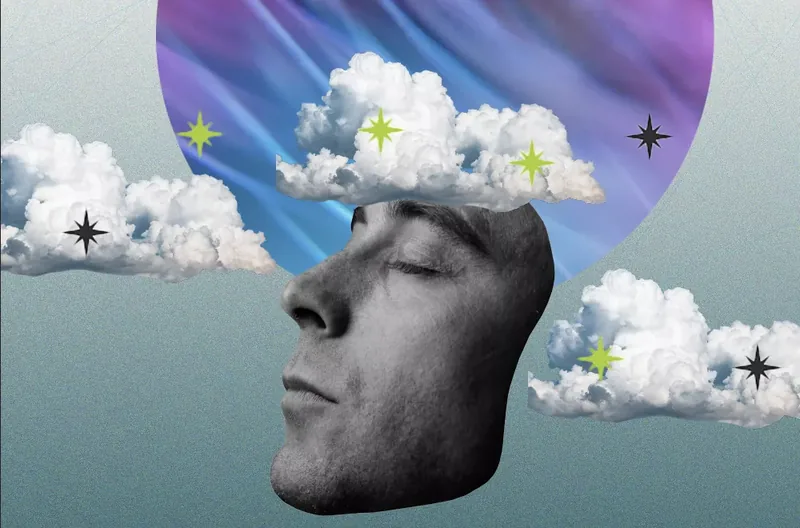It’s a truly unsettling feeling to ask yourself, "Why does my girlfriend hate me?" This doubt can cast a long shadow over a relationship that once brought immense joy and connection. When you're deeply in love, anticipating butterflies at her name and cherishing every moment together, the thought of her feelings shifting can be incredibly confusing and painful. You might notice subtle changes, or perhaps more overt signs, that suggest her affection has cooled. Understanding these shifts, whether they stem from internal struggles or relationship issues, is the first step toward clarity. This guide explores the common indicators and underlying causes of a girlfriend's apparent disinterest, offering actionable strategies to address these challenges and ultimately, to protect your well-being.
1. Understanding the Shift: Why Does Your Girlfriend Seem to Hate You?
The question, "Why does my girlfriend hate me?" often arises from a deep sense of confusion and hurt when a partner's behavior changes dramatically. What once felt like a loving, reciprocal connection might now feel strained, distant, or even hostile. This shift can be incredibly disorienting, especially when you are still very much in love and committed to the relationship. It's important to recognize that while the feeling might be one of "hate," her actions often stem from a complex mix of emotions, personal struggles, or unresolved relationship issues rather than pure animosity.
When a relationship begins, the rush of new love often creates an intense bond, characterized by constant communication, shared dreams, and undeniable physical attraction. Your brain even undergoes chemical changes, releasing hormones like oxytocin and dopamine that reinforce feelings of attachment and pleasure (Seshadri, 2016). However, as time progresses, these initial euphoric feelings can evolve, and sometimes, they can diminish. Coming to terms with the possibility that your girlfriend's feelings may no longer align with yours, or that she might harbor resentment, can be one of the most painful experiences in a relationship (Clark et al., 2019).
Relationships are inherently complicated, dynamic entities that require continuous effort and understanding from both partners. When one partner begins to pull away or express displeasure, it can signal deeper underlying problems that need to be addressed. This section will introduce the emotional landscape of such a situation, setting the stage for a deeper dive into the specific signs and reasons behind a girlfriend's perceived dislike. By exploring these facets, you can gain clarity and begin to navigate this challenging period, whether that means working to mend the bond or recognizing when it's time to move on. The goal is to move beyond the painful question of "Does my girlfriend hate me?" to a place of understanding and proactive solutions.
2. Subtle Signals: How to Spot Dislike in Her Behavior
When you start to wonder, "Why does my girlfriend hate me?", it's often because you've noticed a significant shift in her behavior. These changes can be subtle, manifesting in non-verbal cues, or they can be more overt, impacting the very fabric of your shared life. Recognizing these signals is crucial for understanding the state of your relationship and deciding on the next steps.
One of the most telling signs is a change in her body language. Physical intimacy and closeness are cornerstones of a loving relationship, and a decline in these can be a strong indicator of emotional distance. She might pull away during attempts at a hug or cuddle, or avoid eye contact during intimate conversations. Small gestures like rolling her eyes when you speak, pulling her hand away in public, or maintaining a constant look of contempt around you are powerful non-verbal cues that express disinterest or resentment. For example, you might notice she frequently checks her phone or seems distracted when you're trying to share something important, signaling a lack of engagement.
Another clear indicator is a decrease in the time you spend together. Early in a relationship, couples often crave constant companionship. While this naturally lessens, a consistent pattern of her making excuses to avoid spending time with you, or seeing her social media filled with activities you weren't invited to, suggests a deliberate choice to create distance. This is more than just busy schedules; it's an active decision to prioritize other activities or people over you and the relationship. For instance, if she consistently prioritizes casual outings with friends over pre-planned dates with you, it could be a sign she's pulling away.
Strained communication is also a critical red flag. This can present in two primary ways. Firstly, your daily conversations might become superficial, focusing only on routine topics like work or weather, devoid of deeper emotional connection. These interactions may feel like a chore rather than a genuine exchange. Secondly, communication might become infrequent, leaving you uncertain about when you'll next hear from her or if she'll return your calls or texts. Responding with single words or emojis to thoughtful messages, or ignoring your attempts to discuss deeper feelings, indicates a breakdown in emotional intimacy.
Finally, a decline in physical intimacy is often a significant sign. If sex is no longer happening, or if intimate moments feel distant and lacking passion, it can suggest a waning interest in the relationship's romantic aspect. However, it's vital to consider other factors. Stress, health issues, or dissatisfaction with the quality of intimacy can also impact desire. It doesn't automatically mean "my girlfriend hate me," but it definitely warrants an open conversation. Likewise, if you're always fighting, constantly bickering over minor issues, or if she seems perpetually upset with you, it's a strong signal of underlying resentment or dissatisfaction that needs urgent attention.
3. Beyond the Obvious: Deeper Reasons for Her Apparent Dislike
When faced with the question, "Why does my girlfriend hate me?", it's crucial to look beyond immediate actions and consider the deeper, often complex reasons behind her behavior. Sometimes, her apparent dislike has less to do with you personally and more to do with her internal struggles or the dynamics of the relationship itself. Understanding these underlying causes can provide a clearer path toward resolution or acceptance.
One significant, yet often overlooked, reason is that she might be struggling with a mental health problem. Conditions like anxiety, depression, or even chronic stress can profoundly impact a person's emotional capacity and interest in activities they once enjoyed, including their relationship. Mental health challenges can lead to feelings of detachment, irritability, and a reduced ability to communicate effectively. In such cases, her distance isn't a personal attack but a symptom of her internal battle, making it appear as if your girlfriend hate you when she's actually struggling to cope. Seeking professional help for her mental well-being could be a critical step.
Similarly, external stress factors can heavily influence her mood and behavior. Financial pressures, demanding work environments, family conflicts, or health issues can all consume her emotional resources, leaving little energy for the relationship. When under immense stress, people often withdraw, become easily agitated, or struggle to express affection. What you interpret as hatred might simply be her overwhelmed state manifesting as irritability or distance. It's not necessarily "my girlfriend hate me"; it's more likely that she's struggling to manage her own burdens.
Couples can also simply grow apart over time. Life often takes people in different directions, and if both partners don't actively work to maintain their connection, they can drift. This can happen when careers, personal interests, or even differing life goals begin to create a chasm between you. It's not about hatred, but rather a natural divergence that, if left unaddressed, can lead to a sense of disconnect and disinterest. This gradual separation is often a silent killer of relationships, where both partners realize they are no longer on the same page.
Another painful realization is being in a one-sided relationship. If you consistently find yourself initiating communication, making plans, and carrying the emotional weight, her lack of investment might be misinterpreted as dislike. In these scenarios, she might not actively "hate" you, but her actions indicate a fundamental lack of commitment or enthusiasm for the relationship. This imbalance often leaves the more invested partner feeling unappreciated and questioning their partner's feelings, leading to the painful thought, "Does my girlfriend hate me, or just not care?"
Finally, unhappiness with the relationship itself is a potent cause. This could stem from unresolved conflicts, a breach of trust (like past infidelity), or simply boredom. She might feel unheard in decisions about shared future plans, or that you don't prioritize her needs. Perhaps she perceives an imbalance in emotional labor, feeling like she's carrying too much of the relationship's burden. She might feel you don't listen, or that you're too controlling. These deeply rooted dissatisfactions can manifest as resentment, anger, and ultimately, a behavior that makes you wonder, "Why does my girlfriend hate me?" It's a signal that significant issues within the relationship need immediate and honest attention.
4. Rebuilding Connection: Actionable Steps to Mend Your Relationship
When facing the painful possibility that your girlfriend hate you, or at least seems to, the desire to mend the relationship is often paramount. While there are no guarantees, taking proactive and thoughtful steps can significantly improve your chances of reconnecting or gaining clarity. The focus should be on understanding, communication, and mutual effort.
A crucial first step is self-reflection. Before approaching your girlfriend, take an honest look at your own actions and contributions to the relationship dynamics. Have you been attentive to her needs? Have you dismissed her complaints or concerns in the past? Perhaps you've let certain efforts slide that were present at the beginning of your relationship, like planning special dates or offering consistent emotional support. Introspection can reveal areas where you might have inadvertently contributed to her current dissatisfaction. For example, have you been unconsciously prioritizing work or hobbies over quality time with her? Identifying your role isn't about blaming yourself, but about understanding where you can initiate positive change. This self-awareness provides a solid foundation for genuine apologies and constructive conversations.
Next, it's vital to speak to your girlfriend about the changes you've noticed. This conversation needs to be approached with empathy, honesty, and a non-confrontational attitude. Instead of accusing her, express how her recent behavior has made you feel, using "I" statements. For instance, "I've been feeling a bit distant from you lately, and I'm worried about our connection. Can we talk about what might be going on?" This open dialogue creates a safe space for her to share her grievances, frustrations, or even her own struggles that might be affecting the relationship. Honest communication is the bedrock of any healthy partnership, and addressing these issues head-on can prevent festering resentment. By adopting a policy of transparent communication, you both have the opportunity to articulate needs, address misunderstandings, and work collaboratively toward solutions. This process, though challenging, can ultimately strengthen your relationship and move you past the question, "Why does my girlfriend hate me?"
If you find yourselves struggling to communicate effectively or to navigate complex issues, attending counseling together can be immensely beneficial. A relationship counselor or therapist provides a neutral, expert environment where both partners can express themselves without judgment. They can equip you with tools for improving communication, conflict resolution, and understanding each other's perspectives. Counseling isn't just for relationships on the brink; it's also invaluable for enhancing interaction, intimacy, and overall connection. A therapist can help identify deep-seated issues that might be contributing to her apparent dislike, such as past trauma or differing attachment styles. Investing in professional guidance demonstrates a commitment to the relationship and can offer a structured path toward healing and growth, potentially transforming the dynamics from "my girlfriend hate me" to a renewed partnership.
5. Knowing When to Let Go: Prioritizing Your Well-being
While the previous steps focus on rebuilding and strengthening your relationship, it's equally important to recognize when, despite your best efforts, the relationship may no longer be viable or healthy. The question, "Why does my girlfriend hate me?" can be emotionally exhausting, and at some point, prioritizing your own happiness and well-being becomes paramount. This doesn't mean giving up easily, but rather understanding that sometimes, the most loving act for both individuals is to move on.
If you have engaged in self-reflection, initiated honest conversations, and even sought professional counseling, yet the dynamic remains unchanged, or her behavior continues to be dismissive or hostile, it might be time to accept that the relationship has run its course. True change requires willingness and effort from both partners. If one person is consistently unwilling to engage in problem-solving, acknowledge issues, or commit to improvement, then your efforts, no matter how sincere, will ultimately be in vain. Continuing to pour energy into a relationship that is not reciprocated can lead to significant emotional distress, eroding your self-esteem and overall mental health. Acknowledging this reality, though painful, is a crucial step towards healing.
Ending a relationship, especially one where deep feelings were involved, is incredibly difficult. It can bring feelings of failure, sadness, and loneliness. However, staying in a relationship where you constantly feel unloved, resented, or questioned can be far more damaging in the long run. Prioritizing your happiness means recognizing your worth and understanding that you deserve a relationship where you feel valued, respected, and loved. This decision is not a sign of weakness but of strength and self-preservation. It is about choosing a future where you can thrive, rather than endure.
The process of moving on involves mourning the loss of the relationship and the future you envisioned. It’s okay to feel sad, angry, or confused. Leaning on your support system—friends, family, or a mental health professional—during this time is crucial. Engaging in activities that bring you joy, focusing on personal growth, and rediscovering your individual passions can help you heal and prepare for healthier connections in the future. Remember, the goal is not to quickly find a new partner, but to cultivate a sense of inner peace and resilience. Ultimately, recognizing when to let go is an act of profound self-care, allowing you to move past the painful question of "Why does my girlfriend hate me?" and step into a future where your well-being is at the forefront.
Being at odds with someone you love is never enjoyable. Watching your girlfriend switch from affection to obvious dislike at everything you do can cause worry about her feelings and the future of your relationship. While it is understandable to brood over the changes in your partner’s behavior, honesty and proper communication are trusted ways to improve your relationship. If you find that you've tried everything and nothing seems to work, it may be time to move on from the relationship. If you're having a difficult time managing the stress that may arise from your relationship issues, reach out to a mental health professional.












